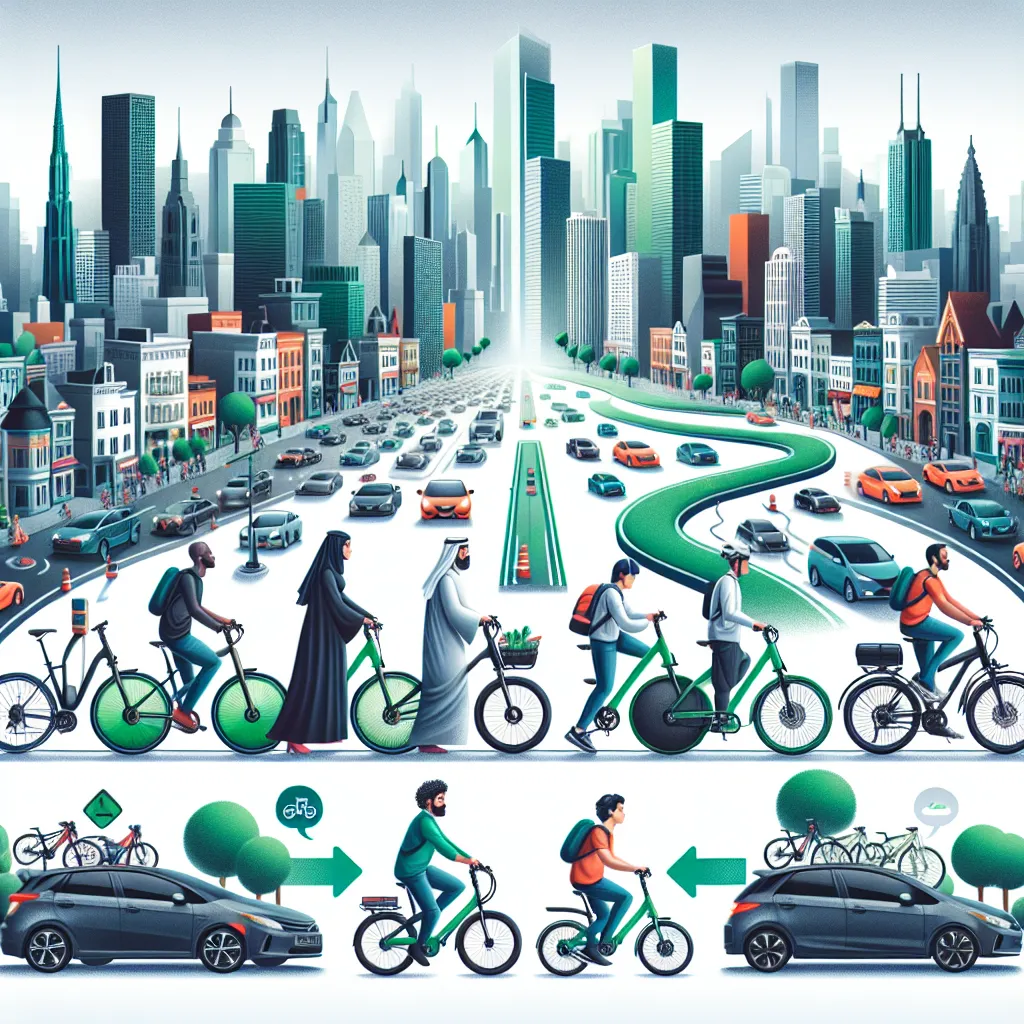The Rise of Electric Bikes: Transforming Urban Transportation
The Rise of Electric Bikes: Transforming Urban Transportation
In recent years, the popularity of electric bikes, also known as e-bikes, has skyrocketed. These innovative vehicles are revolutionizing urban transportation, offering a sustainable and convenient alternative to traditional bicycles and cars. With their increasing adoption and advancements in technology, electric bikes are becoming a game-changer in our daily commutes and leisure activities.
The Basics of Electric Bikes
Electric bikes are bicycles equipped with an electric motor that assists the rider’s pedaling effort. They come in various styles, from sleek city bikes to off-road mountain bikes, catering to different needs and preferences. The electric motor is powered by a rechargeable battery, which provides additional propulsion to the rider. The level of motor assistance can be adjusted, allowing riders to decide the amount of effort they want to exert.
One of the key benefits of electric bikes is their ability to extend the rider’s range and speed. With the motor’s assistance, riders can conquer longer distances and tackle challenging terrains with ease. Electric bikes also reduce the physical exertion required for cycling, making them a great option for people of all fitness levels and ages.
The Advantages of Electric Bikes
1. Eco-Friendly Transportation:
One of the primary advantages of electric bikes is their environmental sustainability. By using an electric bike instead of a car, you significantly reduce your carbon footprint. Electric bikes produce zero emissions and consume less energy compared to cars, making them an eco-friendly mode of transportation. With increasing concerns about climate change and air pollution, electric bikes offer a greener alternative for urban commuting.
2. Health and Fitness Benefits:
Contrary to popular belief, electric bikes still require physical effort from the rider. While the electric motor provides assistance, riders are still required to pedal. This means that even on an electric bike, you can enjoy the health benefits of cycling. Regular cycling helps to improve cardiovascular fitness, muscle strength, and overall well-being. Electric bikes also encourage more people to engage in physical activity, especially those who may have physical limitations or live in hilly areas.
3. Cost-Effective Transportation:
Compared to cars, electric bikes offer a significantly more affordable mode of transportation. The cost of purchasing an electric bike is considerably lower than that of a car, and the maintenance and operating costs are minimal. Electric bikes can be charged using a standard power outlet, and the cost of electricity is significantly lower than the price of gasoline or public transportation fares. By switching to an electric bike, you can save money on fuel, parking fees, and public transportation expenses.

4. Faster and Efficient Commutes:
Electric bikes allow riders to navigate through traffic more efficiently, avoiding congestion and reducing travel time. With their motor assistance, electric bikes can reach higher speeds compared to traditional bicycles. Commutes that would take longer on a regular bike or through public transportation can be completed faster on an electric bike, making them a practical choice for urban dwellers.
The Impact of Electric Bikes on Urban Transportation
The increasing popularity of electric bikes is transforming urban transportation in several ways:
1. Reducing Traffic Congestion:
As more people switch to electric bikes for their daily commutes, there is a noticeable decrease in traffic congestion. Electric bikes take up less space on the road compared to cars, allowing for smoother flow of traffic. By reducing the number of cars on the road, electric bikes contribute to less congestion, shorter travel times, and improved overall traffic conditions.
2. Expanding Access to Cycling:
Electric bikes are breaking down barriers to cycling, making it more accessible to a wider range of people. The motor assistance enables individuals who may have physical limitations or are less fit to engage in cycling. Electric bikes also attract individuals who live in hilly areas, as they provide the necessary assistance to conquer challenging terrains. By expanding access to cycling, electric bikes promote a healthier and more active lifestyle for urban dwellers.
3. Enhancing Last-Mile Connectivity:
Electric bikes are particularly useful for bridging the gap in transportation for short-distance trips, commonly referred to as the “last mile.” Many urban areas face challenges in providing efficient and convenient transportation options for short distances. Electric bikes offer a practical solution, allowing riders to quickly and easily cover the last leg of their journey. This not only reduces reliance on cars for short trips but also improves overall connectivity within cities.
4. Redefining the Commuting Experience:
Electric bikes are transforming the way people perceive their daily commutes. Instead of being stuck in traffic or dealing with crowded public transportation, electric bike riders can enjoy a more enjoyable and stress-free journey. The combination of physical activity, fresh air, and the freedom to navigate through urban spaces creates a positive commuting experience. Electric bikes offer an opportunity to make commuting a pleasant part of the day, rather than a mundane and stressful task.
The Future of Electric Bikes
The future of electric bikes looks bright, with ongoing advancements in technology and increased awareness of their benefits. As battery technology improves, electric bikes are becoming more efficient and capable of longer distances. The integration of smart features, such as GPS navigation systems and smartphone connectivity, further enhances the overall riding experience.
Furthermore, governments and urban planners are recognizing the potential of electric bikes in shaping sustainable transportation systems. Many cities are investing in infrastructure improvements, including dedicated cycling lanes and charging stations for electric bikes. Electric bike-sharing programs are also emerging in urban areas, providing a convenient and affordable mobility option for residents and tourists.
As we move towards a more sustainable and connected future, electric bikes are set to play a significant role in transforming urban transportation. Their numerous advantages, including eco-friendliness, health benefits, cost-effectiveness, and enhanced commuting experience, make them an attractive choice for individuals and cities alike. Electric bikes have the potential to revolutionize how we navigate urban spaces, offering a greener and more efficient mode of transportation.
